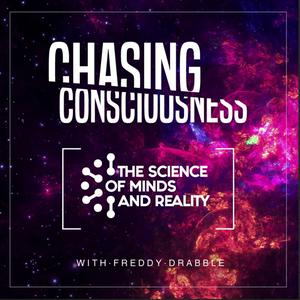How should we support the dying, and how should we approach death itself? What is conscious dying? What does Carl Jung’s work say about facing death?
In this episode we have the complex topic of how to face Death, through the lens of psycho analyst Carl Jung. I’m sure that some of you will have found this episode because you’re facing death during this time, either your own or of a loved one; and to those of you I offer my condolences and healing prayers, and hope dearly that what we discuss today will offer some perspective and assistance, and my apologies in advance if any of our ideas cause you pain: death and mourning are extremely personal topics.
But I also hope that many others of you are here simply to try and form a healthier relationship with death.The inspiration for this episode came not only from my own experience facing my own parent’s mortality, but also from my intuition that our modern, consumeristic, aestheic and individualistic society has made us more afraid of death than ever; perhaps because of our modern societies focus on material well-being, and the power of technology to guarantee it. My gut feeling is that we need to become aware of this unconscious taboo, as it seems to be hindering a deeper and perhaps more wholesome acceptance of mortality in general.
And that’s why I wanted to speak to a specialist like my guest psychoanalyst Monika Wikman. Monika received her PhD in clinical psychology from the California School of Professional Psychology and then qualified as a Jungian psychoanalyst at the Jung-Von Franz Center for Depth psychology in Zurich. She is an expert on topics including archetypal phenomena surrounding death, dreams, active imagination and alchemy. Her work with the dying culminated in a research project called ‘Dreams of the Dying’ at UC San Diego Medical Center. She is also the author of the book, “Pregnant Darknesss: Alchemy and the rebirth of consciousness”.
What we discuss:
00:00 Intro.
04:30 How to support the dying.
07:05 Death informs us.
09:00 Facing our own mortality - the history of Conscious dying.
13:18 The Osiris Myth. Dismemberment and rememberment.
16:45 Death is the ultimate goal, an achievement, according to Jung.
19:15 Death duellers.
21:45 The last step of individuation.
24:45 Symbolic death, according to Jung.
30:00 ‘The wound is where the light enters you’. Rumi
33:00 The religious function - Jung.
34:00 Monika’s 2nd NDE - a relationship with the darkness.44: 00 Life after death and the subtle body.
46:00 Prayer and connecting with the eternal.
50:00 Only through limitation can we connect with the eternal.
51:00 The subtle body - uniting psyche and matter.
56:10 The Divine wedding - the marriage between opposites.
57:45 Synchronicities around the dying.
01:07:00 Studying the dreams of the dying.
01:11:30 Dead friends and family often come for them in dreams.
01:15:20 Common motifs of crossing rivers, thresholds and initiations.
01:17:00 How we mourn.
01:29:20 If you didn’t serve someone well you’ll regret it after they die.
01:22:00 Grief transforms.
References:
Monika Wikman, “Pregnant Darkness - Alchemy and the rebirth of consciousness”
Wendell Berry poem - Rising
Mircea Eliade, “Yoga: immortality & Freedom”
Chiron, the wounded healer.
C.G.Jung, “Memories Dreams and Reflections”.
Ram Dass quote, ‘Dying is absolutely safe’
Leonard Cohen quote, 'We are so lightly here'. (Not William Blake).


